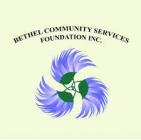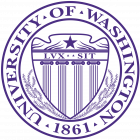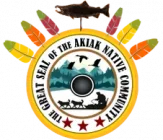Community-based Mitigation and Adaptive Strategies for River Flooding and Erosion in Alaska Native Communities
Navigating the New Arctic (NNA) is one of NSF's 10 Big Ideas. NNA projects address convergence scientific challenges in the rapidly changing Arctic. This Arctic research is needed to inform the economy, security and resilience of the Nation, the larger region and the globe. NNA empowers new research partnerships from local to international scales, diversifies the next generation of Arctic researchers, enhances efforts in formal and informal education, and integrates the co-production of knowledge where appropriate. This award fulfills part of that aim by supporting planning activities with clear potential to develop novel, leading edge research ideas and approaches to address NNA goals. It integrates aspects of the natural environment, built environment, and social systems, and addresses important societal challenges, builds significant educational opportunities, and engages with local and Indigenous communities.
Many Alaska Native (AN) villages located in the Yukon-Kuskokwim (Y-K) Delta in Alaska have been affected by a large number of flooding events due to torrential rains, melting snow packs, and river ice jams causing erosion along riverbanks. Communities have begun developing hazard and adaptation plans, however many communities lack accurate models that are needed to predict flooding and erosion risk. Currently, models required to forecast flooding and erosion in the Y-K Delta are limited, due in part to the minimal data in the region, the large number of rivers, and the lack of monitoring equipment in rural areas. Furthermore, too often climate mitigation strategies do not incorporate local cultures or community priorities; in fact, they often reflect technical decisions only. The need is urgent to identify solutions at the convergence of local knowledge and engineering and scientific approaches. Convergence of field measurements and data with Indigenous knowledge can guide better responses to immediate threats, such as relocating imminently threatened homes away from an eroding shoreline or elevating buildings above flood lines.
This planning grant is the first step toward a long-term goal of addressing flooding and erosion risks in AN villages in the Y-K Delta region. The project creates methodologies and tools at the intersection of hydrologic modeling, soil characterization and Indigenous knowledge; these tools are necessary to protect AN residents from the environmental threats. This project draws from diverse areas of expertise to assemble a team of researchers that bridge distinct areas, including physical and engineering systems (civil engineering), natural and ecological systems (atmospheric sciences, flooding, geomorphology) and social systems (anthropology). The project team trains students, including Alaska Native students, in community-based methods for co-generation and co-production of data and scientific methods. These convergent approaches promise to improve our understanding of hazard mitigation and adaptation planning due to changing Arctic conditions, and commence the assembly of a new research community which is geographically and disciplinarily diverse and integrative.
This project aims to understand how researchers and agencies can better support communities in responding to climate change impacts such as flooding and erosion in the Y-K Delta. Through a transdisciplinary approach using social science and quantitative models, this work aims to understand multiple perspectives on the river and how to address issues that impact community wellbeing based on community priorities. A Y-K Delta regional workshop will be conducted in Bethel, AK and semi-structured interviews with community representatives will be conducted in the Y-K Delta in Fall 2022.
Principal Investigators
Resources
NNA Planning: Community-Based Mitigation and Adaptive Strategies for River Flooding and Erosion in Alaska Native Communities
Here we present preliminary planning work to inform village and regional decision making on mitigation and adaptation strategies. This work has been completed in collaboration with communities on the Kuskokwim River between 2021 and 2022, with the goal of co-generating a research design and approach for a multi-site study integrating local knowledge, Indigenous science, and western science.
Project Outcomes
The project focused on three major areas: historical river change documentation, early modeling efforts, and community informed research design. A key activity was a mapping workshop that engaged residents in Alaska villages from Akiak, Bethel, Tuluksak, Kwethluk, and Akiachak. Participants shared decades of observations about erosion, flooding, permafrost thaw, and ice jams dating back to 1964. They also described changes in river channels, the appearance and disappearance of sandbars, and impacts from human activities. These shared histories captured the complex relationship between natural processes and human influence, while highlighting the urgency of recent environmental shifts.
The team developed two early hydrologic models for the Kuskokwim River. One focused on simulating flood discharge events, while the other examined watershed changes over time. These models offered useful starting points, but also revealed key limitations, especially the lack of ground-based weather and river data. Initial analysis showed likely underreporting of precipitation, which affects the reliability of current models. Addressing these data gaps will be a focus of future research, with a plan to combine community observations with new sensor installations and alternative data sources.
Workshop participants also spoke about the personal and cultural impacts of environmental change. Many described how erosion and flooding have disrupted fishing practices, food storage, and traditional activities, leading to food insecurity and emotional stress. Community members emphasized the need for research that reflects their lived experiences and includes their voices from the beginning. They encouraged future work to make full use of community knowledge, including oral histories and local observations, to help guide modeling and planning efforts.
Through this grant, the team identified clear priorities for future proposals. These include expanding weather and river monitoring, developing protocols for community led data collection, and improving modeling tools that reflect both scientific data and Indigenous perspectives. The project has shown that local insights are essential for understanding and responding to complex climate risks in this region. This work has built a strong foundation for future research that is both technically rigorous and deeply rooted in the needs and knowledge of Alaska Native communities.





